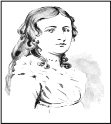
科目: 來源:上海市崇明區(qū)2019-2020學(xué)年九年級上學(xué)期教學(xué)質(zhì)量調(diào)研測試(一模)英語試卷 題型:改寫句子
The leaders have already reached an agreement on economic affairs.(改為否定句)
The leaders ________ reached an agreement on economic affairs ________.
查看答案和解析>>
科目: 來源:上海市崇明區(qū)2019-2020學(xué)年九年級上學(xué)期教學(xué)質(zhì)量調(diào)研測試(一模)英語試卷 題型:劃線部分提問
Jenny put on a beautiful dress to attend the ball (舞會) last night.(對劃線部分提問)
________ ________ Jenny put on to attend the ball last night?
查看答案和解析>>
科目: 來源:上海市崇明區(qū)2019-2020學(xué)年九年級上學(xué)期教學(xué)質(zhì)量調(diào)研測試(一模)英語試卷 題型:同義句轉(zhuǎn)化
It’s polite of you to repeat the question for the old lady.(保持原句意思基本不變)
It’s polite of you to ________ the question ________ for the old lady.
查看答案和解析>>
科目: 來源:上海市崇明區(qū)2019-2020學(xué)年九年級上學(xué)期教學(xué)質(zhì)量調(diào)研測試(一模)英語試卷 題型:改寫句子
Tony didn’t know where he could collect the information about cormorant fishing.(改為簡單句)
Tony didn’t know ________ ________ collect the information about cormorant fishing.
查看答案和解析>>
科目: 來源:上海市崇明區(qū)2019-2020學(xué)年九年級上學(xué)期教學(xué)質(zhì)量調(diào)研測試(一模)英語試卷 題型:改寫句子
Each student gives a report about national news in Politics lessons. (改成被動語態(tài))
A report about national news ________ ________ by each student in Politics lessons.
查看答案和解析>>
科目: 來源:上海市崇明區(qū)2019-2020學(xué)年九年級上學(xué)期教學(xué)質(zhì)量調(diào)研測試(一模)英語試卷 題型:改寫句子
Linda asked me, “When will the CCTV Host Competition come to an end?”(改為間接引語)
Linda asked me ________ the CCTV Host Competition _________ come to an end.
查看答案和解析>>
科目: 來源:上海市崇明區(qū)2019-2020學(xué)年九年級上學(xué)期教學(xué)質(zhì)量調(diào)研測試(一模)英語試卷 題型:將所給單詞連成句子
is fond of, his wealth, the rich businessman, in front of, showing off, poor people(連詞成句)
_________________________________________________________________.
查看答案和解析>>
科目: 來源:上海市崇明區(qū)2019-2020學(xué)年九年級上學(xué)期教學(xué)質(zhì)量調(diào)研測試(一模)英語試卷 題型:閱讀單選

Deborah Sampson was born in Massachusetts, US in 1760. She was the fifth oldest of the seven children in her family. The family was so poor that the mother sent the kids off to live with friends and relatives. At the age of 5, Deborah was taken in by an old woman and was then sent to work as a servant in another home one year later.
At the age of 10, she helped with the housework and worked on a farm for about eight years, growing to be about 173 cm tall, almost 30 cm taller than the average woman of her day. Hard physical work helped her develop a strong body.
She dreamed of going on some adventures. When the American Revolutionary War broke out in 1775, women were not allowed to serve in the army. But Deborah dressed herself to look like a man and joined the army in 1782. She called herself Robert Shurtliff.
One day, during an attack, Deborah was shot (射中) in the back and leg. Another soldier took her to the hospital. A doctor treated the wound on her back and asked if she had any other wounds. Deborah lied and said no. She was afraid that if the doctor examined her leg, he would find out her secret. The bullet was deep in her leg. Using a pocket knife, Deborah took it out. She left the hospital and continued to fight.
After the war ended, Deborah got married and had children. But she still longed for adventure. So she put on her soldier’s uniform and traveled around the country telling of her life as Robert Shurtliff, the young and brave soldier.
1.Deborah Sampson started to work as a servant in .
A.1760 B.1765 C.1766 D.1770
2.Deborah’s made her different from the average woman of her day.
A.unusual height B.long hair C.poor childhood D.beautiful face
3.Deborah joined the army successfully because of the following reasons EXCEPT that .
A.she dressed herself like a man B.she used a man’s name
C.she had a strong body D.The old woman asked her
4.The word “it” in paragraph 4 refers to (指的是) .
A.the pocket knife B.the bullet C.the secret D.her leg
5.Which of the following statements is NOT true about Deborah?
A.Deborah denied having another wound when being asked.
B.Deborah treated the wound in her leg by herself.
C.Deborah walked to the hospital after being shot.
D.Deborah went on fighting in the war after being treated.
6.What was the story mainly about?
A.Deborah’s adventurous life. B.Reasons why Deborah liked adventures.
C.A big poor family Deborah had. D.Fight for women’s right.
查看答案和解析>>
科目: 來源:上海市崇明區(qū)2019-2020學(xué)年九年級上學(xué)期教學(xué)質(zhì)量調(diào)研測試(一模)英語試卷 題型:完型填空

Are newspapers dying?
For years, it has been said that newspapers are at death’s door. Every year brings more news of closing. But why is the situation so __________ for newspapers?
Newspapers have a long history. The first newspaper was printed in the 1600s. The industry witnessed its most successful periods in the early 20th century.
With the appearance of radio and TV, however, newspaper circulation (發(fā)行量) began to fall. By the mid-20th century, radio and TV had become so popular that people no longer had to ______ newspapers for news. That was especially true of breaking news.
Afternoon newspapers were the first to suffer. People coming home from work increasingly turned on the TV, instead of opening a newspaper because TV could provide news that happened a short time ago. It’s true that newspapers couldn’t compete with TV on ______, but they could provide in-depth reports that TV news could not.
But newspapers suffered another, heavier blow (打擊) in the 1990s. With the appearance of the internet, large amounts of information became ______. Many newspaper readers realized that they could read news on the Internet. There seemed to be little reason to pay for a newspaper subscription (訂閱).
So what does the future hold? Will newspapers die? Maybe not. Many newspapers are now making ________. Some are going digital. Some are going farther and taking the industry to places it has never been to. After all, people still want the news. And many agree that newspapers are still an important source of in-depth news, analysis and opinions. If newspapers _________ completely, there will be nothing to take their place.
1.A.exciting B.terrible C.attractive D.bright
2.A.give up B.live on C.rely on D.pick up
3.A.speed B.member C.instruction D.stress
4.A.super B.important C.safe D.free
5.A.mistakes B.changes C.advertisements D.noises
6.A.delay B.release C.enter D.disappear
查看答案和解析>>
科目: 來源:上海市崇明區(qū)2019-2020學(xué)年九年級上學(xué)期教學(xué)質(zhì)量調(diào)研測試(一模)英語試卷 題型:單詞填空

Would you like to travel space?
It is 2050. Space tourism has become a reality. So would you want to be a space tourist? Here, some middle school students share their opinions.
Jeea, U.K.
I love space very much and would like to be the first teenager to d1. a new planet. Then perhaps it would be named after me. I would become famous around the world!
Emily, U.S.
Space exploration can be dangerous. What should I do if I get l2.? I can’t come back to the earth. I am also afraid of heights. It would be very frightening when you look down from a spaceship!
Klaudia, Spain
I would love to go to space because from there I could enjoy a nice v3. of the Earth. The blue oceans and green forests on the Earth must be magnificent. What’s more, I am curious about what life is like without gravity (重力). Perhaps it would be fun to play golf in space!
Edward, U.K.
It would be cool. But how lonely and depressed I would be without a4. around me! I would miss my family. It also requires a large amount of training to become a space tourist, and I don’t think I have time for that. Moreover, I don’t think I can a5. a trip to space. That would definitely cost a lot!
Zainab, South Africa
I’d love to. We studied the solar system in Science classes this semester. I think space is amazing and I desire to know more about it. Unluckily, I have no other way but to search for information about it o6.. If I can have the chance to travel to space, I would directly see the things I never see on the Earth.
Ana, U.S.
I would not like to be a space tourist. I respect those who love space tourism. For me, I only want to f7. on what I have on this planet — my family, my school and my pets. I would like to work hard to make progress in what I am doing.
查看答案和解析>>
湖北省互聯(lián)網(wǎng)違法和不良信息舉報平臺 | 網(wǎng)上有害信息舉報專區(qū) | 電信詐騙舉報專區(qū) | 涉歷史虛無主義有害信息舉報專區(qū) | 涉企侵權(quán)舉報專區(qū)
違法和不良信息舉報電話:027-86699610 舉報郵箱:58377363@163.com